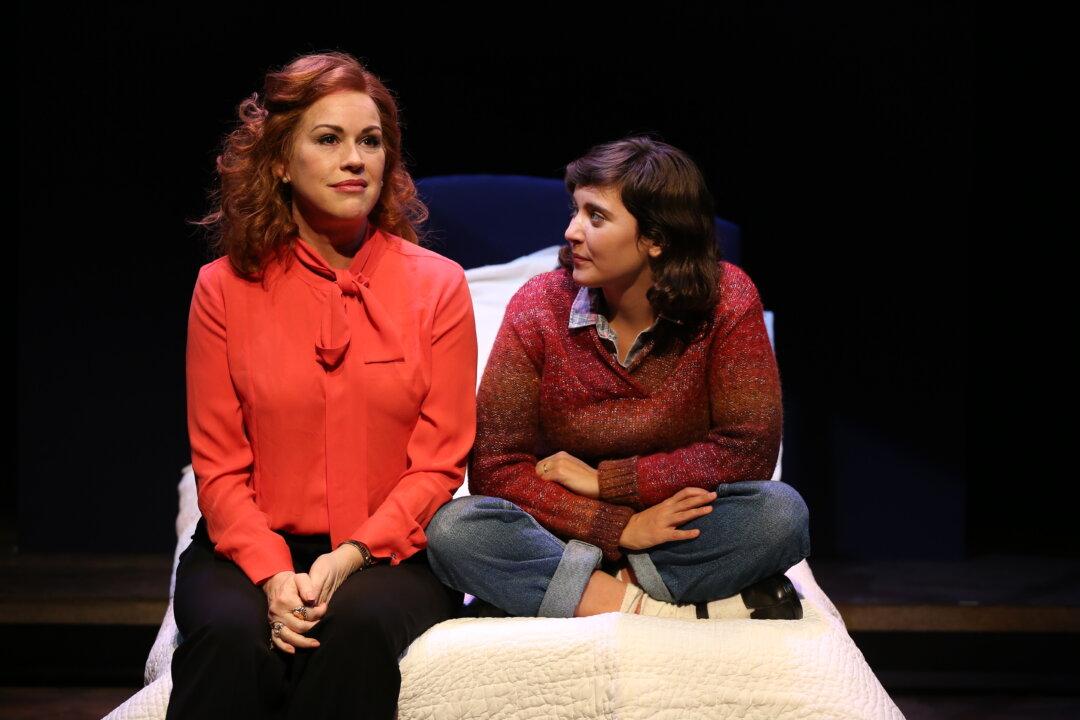NEW YORK—A mother-daughter bond is the focus of the comedic drama “Terms of Endearment,” currently making its U.S. premiere at 59E59 Theaters. It’s a show with heart, insight, and funny and touching moments. Unfortunately, some glaring weaknesses combine to make the production far less than it could be.
Written by Dan Gordon, the play is based on the novel by Larry McMurtry and the Oscar-winning screenplay by James L. Brooks. It spans 1978–1981 and examines the connection between Aurora Greenway (Molly Ringwald) and her daughter Emma (Hannah Dunne).
The audience first sees them, after a brief prologue, on the eve of 18-year-old Emma’s marriage to boyfriend Thomas “Flap” Horton (Denver Milord).
Ringwald's final moments onstage are truly heartbreaking.





